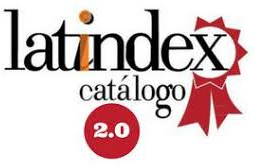¿Quién ha hecho el trabajo sucio? El ensamblaje en la historia latinoamericana y caribeña de la informática
Resumen
En este artículo, se propone el enfoque en las historias de ensamblaje en América Latina y el Caribe para retomar discusiones sobre la informática desde una perspectiva material que dé cuenta de los flujos de capitales y mercancías, así como conocimientos y personas, que han dado forma a la región. De esta manera, el argumento principal es que es posible ampliar las preguntas sobre estas historias, al trazar las redes que permiten formaciones tecnológicas; la mayoría ancladas en historias coloniales de extracción y explotación de recursos naturales y humanos.
Palabras clave
Referencias
Abraham-Van Der Mark, Eve E. (1983). The Impact of Industrialization on Women: A Caribbean Case. In Nash, June C. & Fernández-Kelly, María Patricia (eds.), Women, Men, and the International Division of Labor. SUNY Press.
Adler, Emanuel (1987). The Power of Ideology: The Quest for Technological Autonomy in Argentina and Brazil. University of California Press.
Amir, Sulfikar (2012). The Technological State in Indonesia: TheCo-constitution of High Technology and Authoritarian Politics. Routledge.
Amrute, Sareeta & Murillo, Luis Felipe R. (2020). Introduction: Computing in/from the South. Catalyst: Feminism, Theory, Technoscience, Vol. 6, Nº 2 https://doi.org/10.28968/cftt.v6i2.34594
Ceruzzi, Paul E. (2003). A History of Modern Computing (2nd ed). MIT Press.
Chandler, Alfred D., Jr. (2001). Inventing the Electronic Century: The Epic Story of the Consumer Electronics and Computer Industries, with a New Preface. Harvard University Press.
Dyson, Jon-Paul C. (2021). The Many Histories of DataMan. ROMchip. A Journal of Game Histories, Vol. 3, Nº 2. https://romchip.org/index.php/romchip-journal/article/view/154
Edgerton, David (2004). De la innovación al uso: Diez tesis eclécticas sobre historiografía de las técnicas. Quaderns d’historia de l’enginyeria, Nº 6, pp. 1-23.
Escobar, Arturo (1998). La invención del Tercer Mundo: construcción y deconstrucción del desarrollo. Editorial Norma.
Evans, Peter B. (1995). Embedded Autonomy: States and Industrial Transformation. Princeton University Press.
Evans, Peter B., & Tigre, Paulo Bastos (1989). Estratégias de desenvolvimento de indústria de alta tecnologia: Análise comparativa da informática no Brasil e na Coréia do Sul. Revista Brasileira de Economia, Vol. 43, Nº 4, pp. 549-574.
Gama, Ruy (1983). História de la técnica e História de las Ciencias. Ciencia, Tecnología y Desarrollo, Vol. 7, Nº 3, pp. 5.
Gama, Ruy (1987). A tecnologia e o trabalho na história. Nobel : EDUSP.
Grunwald, Joseph, & Flamm, Kenneth (1985). The Global Factory: Foreign Assembly in International Trade. Brookings Institution.
Grynbaum, Gail (1975). Electronics Runaways. NACLA’s Latin America and Empire Report, Vol. 9, Nº 5, pp. 12-14. https://doi.org/10.1080/10714839.1975.11724018
Haraway, Donna (1987). A Manifesto for Cyborgs: Science, Technology, and Socialist Feminism in the 1980s. Australian Feminist Studies, Vol. 2, Nº 4, pp. 1-42. https://doi.org/10.1080/08164649.1987.9961538
Hayes, Thomas C. (1986, January 25). Big Loss at Texas Instruments. The New York Times. https://www.nytimes.com/1986/01/25/business/big-loss-at-texas-instruments.html
Hockenberry, Matthew (2021). Redirected Entanglements in the Digital Supply Chain. Cultural Studies, Vol. 35, Nº 4-5, pp. 641-662. https://doi.org/10.1080/09502386.2021.1895242
Isaacson, Walter (2014). The Innovators: How a Group of Hackers, Geniuses, and Geeks Created the Digital Revolution. Simon & Schuster.
Kervran, David Dumoulin, Kleiche-Dray, Mina, & Quet, Mathieu (2018). Going South. How STS Could Think Science in and with the South? Tapuya: Latin American Science, Technology and Society, Vol. 1, Nº 1, pp. 280-305. https://doi.org/10.1080/25729861.2018.1550186
Lindqvist, Svante (2011). Changes in the Technological Landscape: Essays in the History of Science and Technology. Science History Publications.
López Pérez, Carlos Roberto (1982). Aspectos de la industrialización y la urbanización en una economía agroexportadora: El Salvador, 1969-1979 [M.A., El Colegio de México]. https://www.proquest.com/docview/2631893424/abstract/34022E85E88D435BPQ/1
Marques, Ivan da Costa (2003). Minicomputadores brasileiros nos anos 1970: Uma reserva de mercado democrática em meio ao autoritarismo. História, Ciências, Saúde-Manguinhos, Vol. 10, Nº 2, pp. 657-681. https://doi.org/10.1590/S0104-59702003000200008
Marques, Ivan da Costa (2015). History of Computing in Latin America [Guest editors’ introduction]. IEEE Annals of the History of Computing, Vol. 37, Nº 4, pp. 10-12. https://doi.org/10.1109/MAHC.2015.78
Mathews, Gordon, Ribeiro, Gustavo Lins, & Alba Vega, Carlos (eds.) (2012). Globalization from below: The World’s Other Economy. Routledge.
Mattelart, Armand, & Schmucler, Héctor. (1983). América Latina en la encrucijada telemática (1a ed). Folios Ediciones.
McCrary, Patrick (2016, October 12). It’s not all Lightbulbs. Aeon. https://aeon.co/essays/most-of-the-time-innovators-don-t-move-fast-and-break-things
Nakamura, Lisa (2014). Indigenous Circuits: Navajo Women and the Racialization of Early Electronic Manufacture. American Quarterly, Vol. 66, Nº 4, pp. 919-941. https://doi.org/10.1353/aq.2014.0070
Nye, David E. (2013). America’s Assembly Line. The MIT Press.
O’Brien, Thomas F. (2007). Making the Americas: The United States and Latin America from the Age of Revolutions to the Era of Globalization. University of New Mexico Press.
Philip, Kavita (2016). Telling Histories of the Future: The Imaginaries of Indian Technoscience. Identities, Vol. 23, Nº 3, pp. 276-293. https://doi.org/10.1080/1070289X.2015.1034129
Philip, Kavita, Irani, Lilly, & Dourish, Paul (2012). Postcolonial Computing: A Tactical Survey. Science, Technology, & Human Values, Vol. 37, Nº 1, pp. 3-29. https://doi.org/10.1177/0162243910389594
Quijano, Aníbal (1992). Colonialidad y modernidad/racionalidad. Perú Indígena, Vol. 13, Nº 29, pp. 11-20.
Salazar Candel, Roberto (1995). EL Salvador: Politica industrial, comportamiento empresarial y perspectivas. REVISTA DE LA CEPAL, Nº 55.
Star, Susan Leigh (1999). The Ethnography of Infrastructure. American Behavioral Scientist, Vol. 43, Nº 3, pp. 377-391. https://doi.org/10.1177/00027649921955326
The Economist Intelligence Unit (1973). QER: Central America: Guatemala, El Salvador, Honduras, Nicaragua, Costa Rica, Panama Fourth Quarter 1973. The Economist Intelligence Unit.
Thomas, Hernán. (1995). Sur-desarrollo: producción de tecnología en países subdesarrollados. Centro Editor de América Latina.
Tsing, Anna (2009). Supply Chains and the Human Condition. Rethinking Marxism, Vol. 21, Nº 2, pp. 148-176. https://doi.org/10.1080/08935690902743088
Valderrama, Andrés, & Jiménez, Javier (2008). Desarrollos tecnológicos en Colombia: Superando categorías de oposición. Redes, Vol. 14, Nº 27, pp. 97-115. http://ridaa.unq.edu.ar/handle/20.500.11807/489
Vergara, Ángela (2013). Paternalismo industrial, empresa extranjera y campamentos mineros en América Latina: un esfuerzo de historia laboral y transnacional. Avances del Cesor, Vol. 10, Nº 10, pp. 113-128. https://doi.org/10.35305/ac.v10i10.443
Vinsel, Lee (2022, March 29). What Was “the New Economy”? Medium. https://sts-news.medium.com/what-was-the-new-economy-3744991c7cff
Enlaces refback
- No hay ningún enlace refback.
Copyright (c) 2022 Pasado Abierto

Este obra está bajo una licencia de Creative Commons Reconocimiento-NoComercial 4.0 Internacional.
.jpg) |
ISSN 2451-6961 (online) Open Past is licensed under a Creative Commons Attribution-NonCommercial 4.0 International License. |
| Included in: | |
| ROAD https://portal.issn.org/resource/ISSN/2451-6961 |
| LatinREV https://latinrev.flacso.org.ar/mapa |
| Latindex Directory https://www.latindex.org/latindex/ficha?folio=26011 |
| Google Scholar Link |
| BASE (Bielefeld Academic Search Engine) Link |
 | Latin American (Association of Academic Journals of Humanities and Social Sciences) Link |
 | MIAR (Information Matrix for Journal Analysis) Link |
 | SUNCAT Link |
 | WorldDCat Link |
 | Ibero-American News Link |
| CZ3 Electronische Zeitschriftenbibliothek Link |
| Open Science Directory Link |
| EC3 metrics Link |
| JournalsTOCs Link |
| Malena Link |
| Evaluated by: | |
 | Latindex Catalog 2.0 Link |
 | Basic Core of Argentine Scientific Journals Link |
 | DOAJ (Directory of Open Access Journals) Link |
 | ERIHPLUS (European Reference Index for the Humanities and Social Sciences) Link |
 | REDIB (Ibero-American Network of Innovation and Scientific Knowledge) Link |
 | CIRC (Integrated Classification of Scientific Journals) Link |
| Open Past uses the persistent identifier: | |
|















.png)